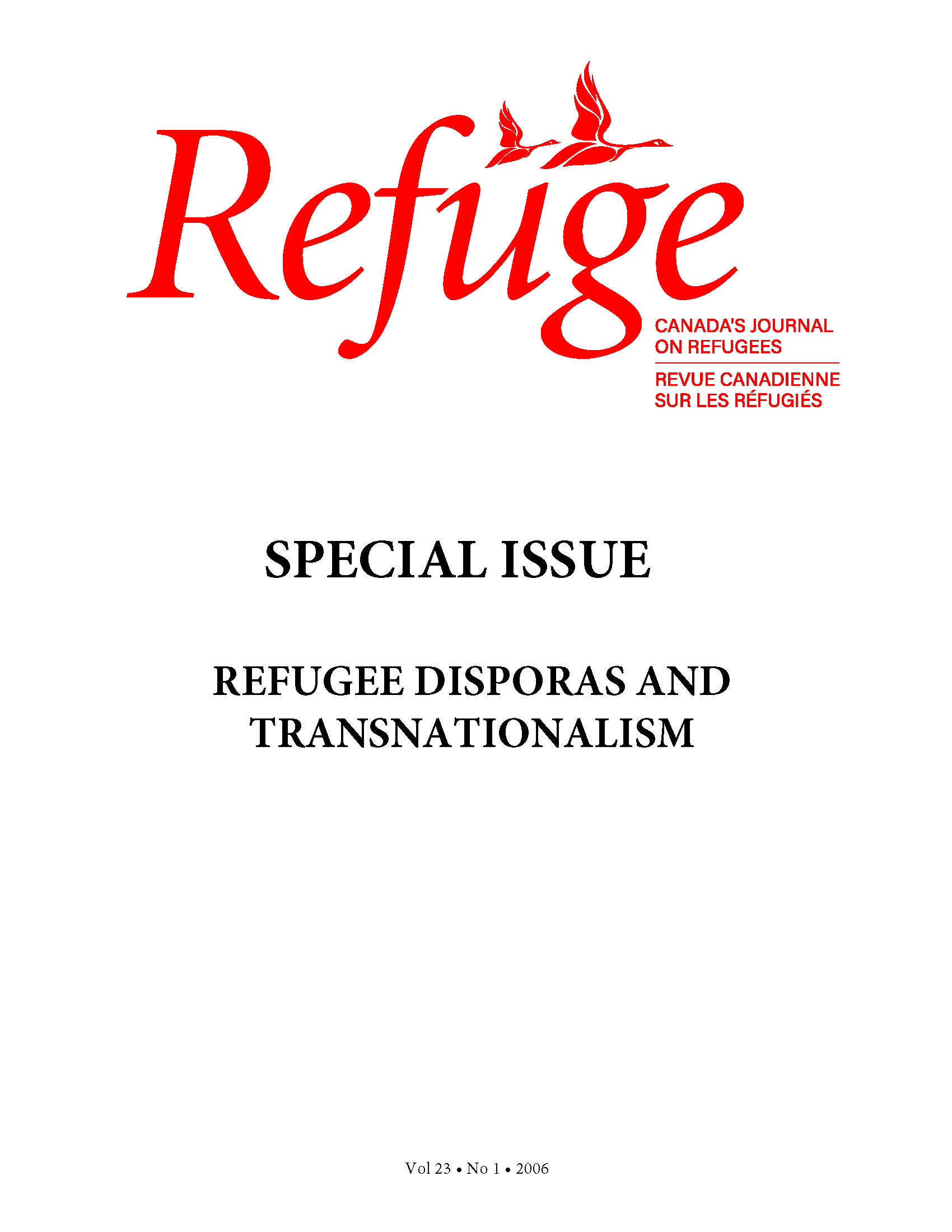In “Virtual Dialogue” with the Somali Community: The Value of Electronic Media for Research amongst Refugee Diasporas
DOI:
https://doi.org/10.25071/1920-7336.21343Keywords:
Dadaab, Kenya, Somali refugees, transnationalism, diaspora, refugee camps, agency, electronic mediaAbstract
This article illustrates the methodological potential of electronic media such as the Internet and e-mail for research amongst refugee diasporas. It will first describe research amongst Somalis in Kenyan refugee camps, which demonstrated the importance of transnational networks in the survival of refugees in the camps. The intention of the research set-up was to provide an alternative approach to common depictions of refugees, which often ignore their agency. A focus on agency, referring to every individual’s level of choice and power, is as much a methodological decision as a theoretical or epistemological assumption, since people’s agency clearly manifests itself in knowledge creation. After describing the possible dialogical nature of academic knowledge creation, the article moves on to illustrate how electronic media can play an important role in this. There are a number of apparent advantages to the methodological use of the Internet and e-mail in research, though at the same time pitfalls should not be underestimated. Nevertheless, when studying refugee communities that are dispersed across the globe and make active use of electronic media, “virtual dialogues” provide fascinating new insights.Metrics
Downloads
Published
How to Cite
Issue
Section
License
Copyright (c) 2006 Cindy Horst

This work is licensed under a Creative Commons Attribution-NonCommercial 4.0 International License.
Refuge authors retain the copyright over their work, and license it to the general public under the Creative Commons Attribution-Non Commercial License International (CC BY-NC 4.0). This license allows for non-commercial use, reproduction and adaption of the material in any medium or format, with proper attribution. For general information on Creative Commons licences, visit the Creative Commons site. For the CC BY-NC 4.0 license, review the human readable summary.







